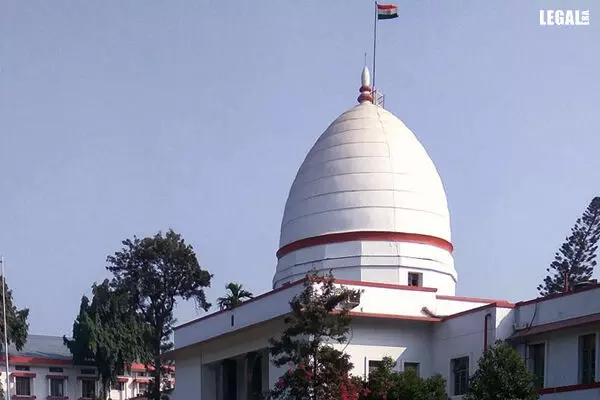- Home
- News
- Articles+
- Aerospace
- Artificial Intelligence
- Agriculture
- Alternate Dispute Resolution
- Arbitration & Mediation
- Banking and Finance
- Bankruptcy
- Book Review
- Bribery & Corruption
- Commercial Litigation
- Competition Law
- Conference Reports
- Consumer Products
- Contract
- Corporate Governance
- Corporate Law
- Covid-19
- Cryptocurrency
- Cybersecurity
- Data Protection
- Defence
- Digital Economy
- E-commerce
- Employment Law
- Energy and Natural Resources
- Entertainment and Sports Law
- Environmental Law
- Environmental, Social, and Governance
- Foreign Direct Investment
- Food and Beverage
- Gaming
- Health Care
- IBC Diaries
- In Focus
- Inclusion & Diversity
- Insurance Law
- Intellectual Property
- International Law
- IP & Tech Era
- Know the Law
- Labour Laws
- Law & Policy and Regulation
- Litigation
- Litigation Funding
- Manufacturing
- Mergers & Acquisitions
- NFTs
- Privacy
- Private Equity
- Project Finance
- Real Estate
- Risk and Compliance
- Student Corner
- Take On Board
- Tax
- Technology Media and Telecom
- Tributes
- Viewpoint
- Zoom In
- Law Firms
- In-House
- Rankings
- E-Magazine
- Legal Era TV
- Events
- Middle East
- Africa
- News
- Articles
- Aerospace
- Artificial Intelligence
- Agriculture
- Alternate Dispute Resolution
- Arbitration & Mediation
- Banking and Finance
- Bankruptcy
- Book Review
- Bribery & Corruption
- Commercial Litigation
- Competition Law
- Conference Reports
- Consumer Products
- Contract
- Corporate Governance
- Corporate Law
- Covid-19
- Cryptocurrency
- Cybersecurity
- Data Protection
- Defence
- Digital Economy
- E-commerce
- Employment Law
- Energy and Natural Resources
- Entertainment and Sports Law
- Environmental Law
- Environmental, Social, and Governance
- Foreign Direct Investment
- Food and Beverage
- Gaming
- Health Care
- IBC Diaries
- In Focus
- Inclusion & Diversity
- Insurance Law
- Intellectual Property
- International Law
- IP & Tech Era
- Know the Law
- Labour Laws
- Law & Policy and Regulation
- Litigation
- Litigation Funding
- Manufacturing
- Mergers & Acquisitions
- NFTs
- Privacy
- Private Equity
- Project Finance
- Real Estate
- Risk and Compliance
- Student Corner
- Take On Board
- Tax
- Technology Media and Telecom
- Tributes
- Viewpoint
- Zoom In
- Law Firms
- In-House
- Rankings
- E-Magazine
- Legal Era TV
- Events
- Middle East
- Africa
Dismissal of claim on the ground of locus standi without the opportunity to produce documents is violation of A&C Act: Gauhati High Court

Dismissal of claim on the ground of locus standi without the opportunity to produce documents is violation of A&C Act: Gauhati High Court
The lower court had rejected the appellant's challenge petition
The Guwahati High Court has held that dismissal of the claim on the ground of locus standi without the opportunity to bring necessary documents on merit and hearing the claims on merit, violates the Arbitration & Conciliation Act (A&C), 1996. The Act provides that all parties be provided equal treatment.
The bench comprising Justice Devashis Baruah was hearing an appeal against the order of the lower court passed under the A&C Act. The court had rejected the appellant's challenge petition.
In 1989-1990, the parties entered into an agreement. But later, a dispute arose between them, leading to the appointment of an arbitrator.
The appellant filed its statement of claim on 14 April 2011 and the respondent filed its defence statement on 21 April. Thereafter, the respondent raised an issue regarding the locus standi of the appellant to file the claim statement. As a result, the appellant furnished two POAs issued in its favor. However, the respondent questioned the authority of the persons who issued the POA.
Meanwhile, an application was filed before the high court stating there was a delay in the completion of the arbitral proceedings. The court directed the arbitrator to conclude the proceedings on or before 31 January 2013.
The arbitrator passed an award and dismissed the claim of the appellant mentioning that it did not have the locus standi to initiate the arbitration proceedings.
Aggrieved by the order, the appellant challenged it under the A&C Act. The court, however, rejected its challenge. Thus, the appellant filed the appeal under Section 37 of the A&C Act.
The appellant contended that the lower court failed to appreciate the fact that the arbitrator did not give an equal hearing to both the parties. It had heard only the respondent. It submitted that the arbitrator deprived it of the opportunity to bring on record the necessary documents and hear the claims on merit.
On the other hand, the respondent countered the appellant was provided various opportunities to present the documents. Also, the high court had set a time limit for the arbitrator to conclude the arbitration. Therefore, the appellant was bound to bring on record all the necessary judgment in a time-bound manner.
But Justice Baruah observed that based on the material on record, it was apparent that the arbitrator did not decide the claims of the petitioner on merit and the petition was dismissed for want of locus standi.
Allowing the appeal, he held that the arbitrator was in a haste to dispose of the arbitration proceedings, depriving the appellant of its right to equal treatment under the A&C Act.



